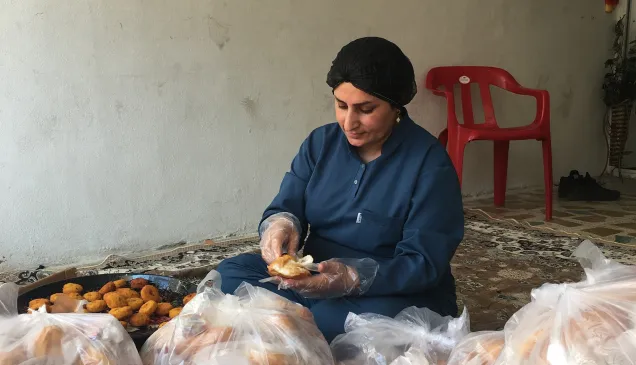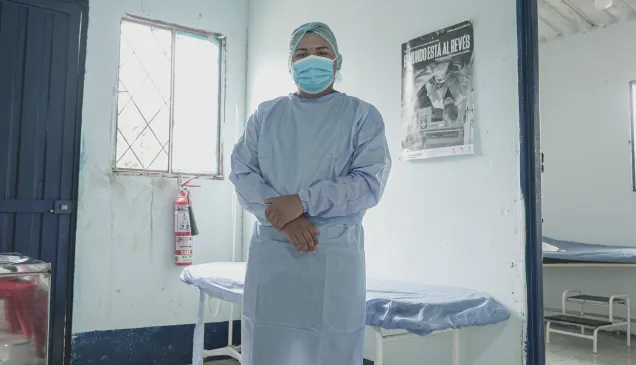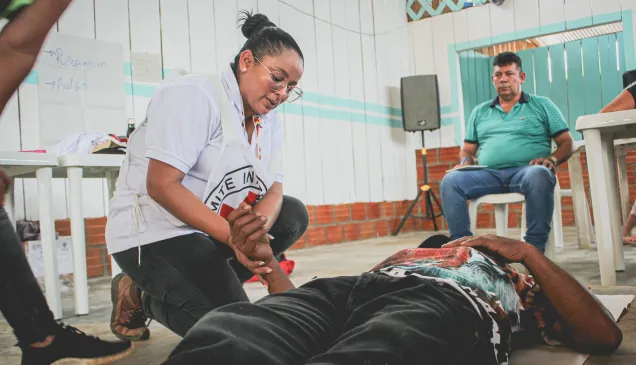Cameroon: Navigating the distance created by COVID-19
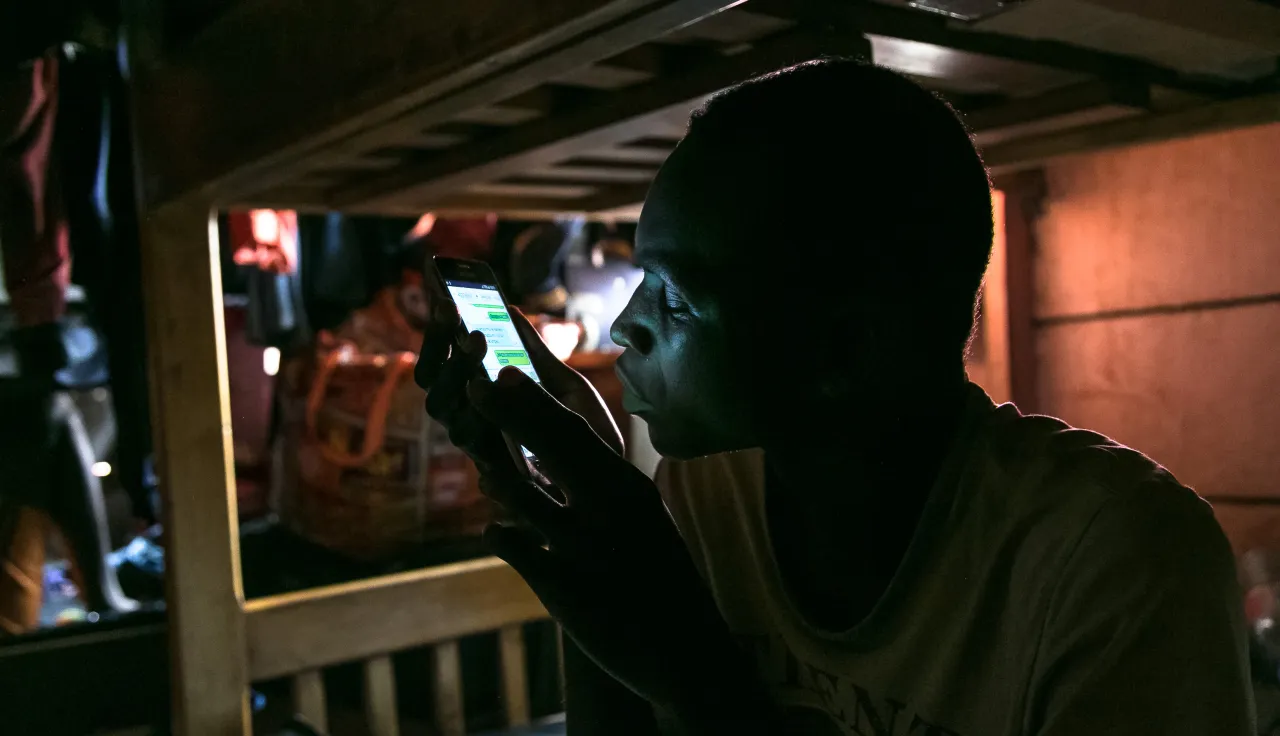
How do you practice social distancing when you’re blind or visually impaired? Soubiane, Judith, Emmanuel, Brigitte, Jules and Bienvenu all live together in a home for visually impaired people on the outskirts of Yaoundé, Cameroon. They recently told photographer Daniel Beloumou how COVID-19 had affected their daily lives. They may feel more cut-off from the rest of the world, but their optimism and camaraderie help them carry on.
"The home is open to everyone, be they blind, visually impaired, abandoned, orphaned or troubled," says Edwige Mbazoa, now 86, who for more than 20 years has run the Foyer Colonel-Daniel-de-Rouffignac. Under her care and guidance, the couple dozen children and young people who live there are dreaming of finding their place in the wider world, despite the obstacles they face.
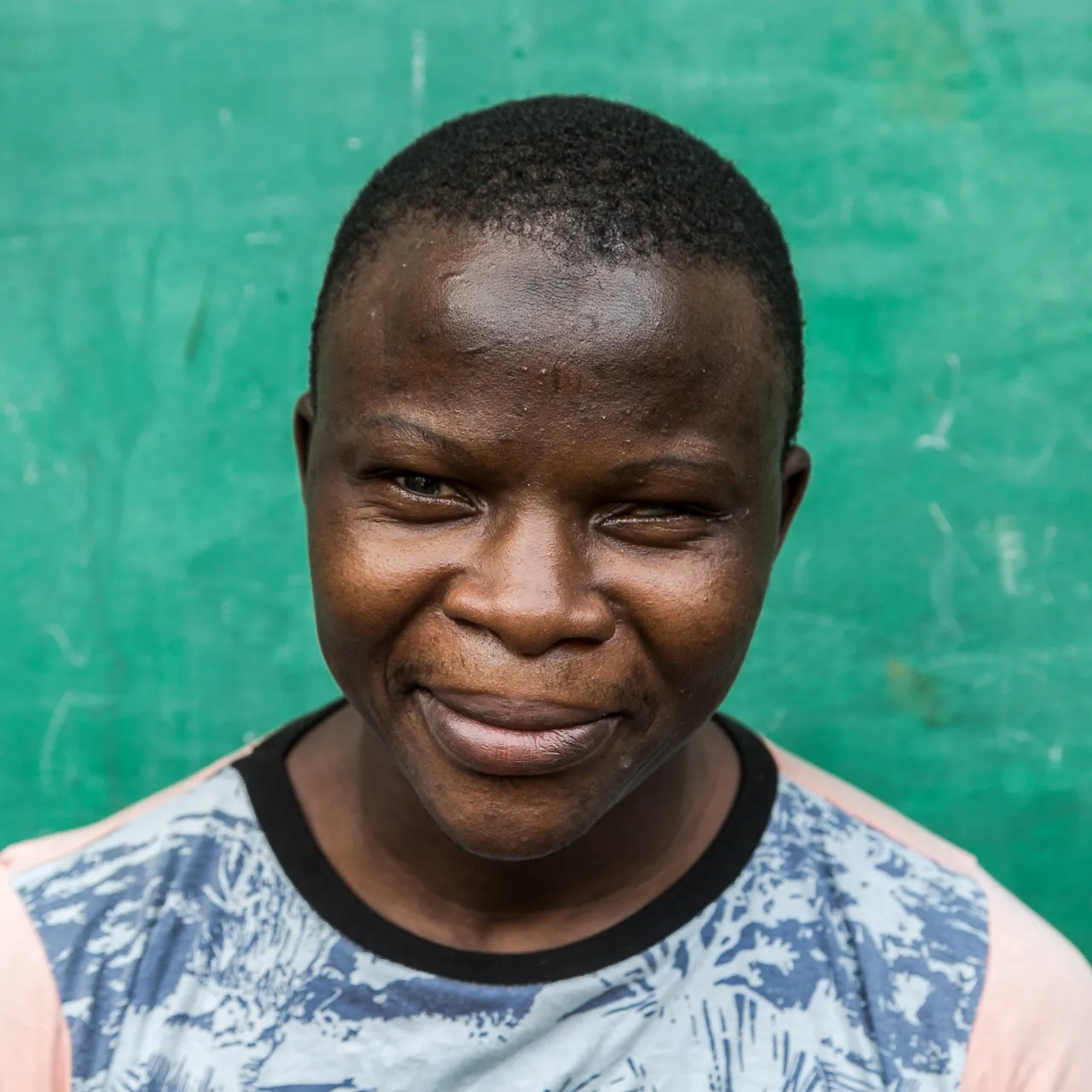
Soubiane Amandjoda, 27, from northern Cameroon
I listen to the news all the time, so I heard about the coronavirus and immediately started taking precautions, like wearing a mask when I go outside.
"I do everything I can to be seen as normal. I have sighted friends and blind friends and if a girl turns me down, I think it's because she's not interested, not because I'm blind."
The lockdown is particularly hard for blind people in Cameroon. Before, I visited my friends and family. I ran my businesses, which brought in 1,000 to 2,000 CFA francs a day (about 1.5 to 3 euros). But now I'm at a complete loss. The money's run out.
Friends and family no longer want to visit, and we can't go see them either. We can no longer get help from others, touch people or discuss with them. I hope it will be over soon. Later on, I would like to be a human resource manager for a company.
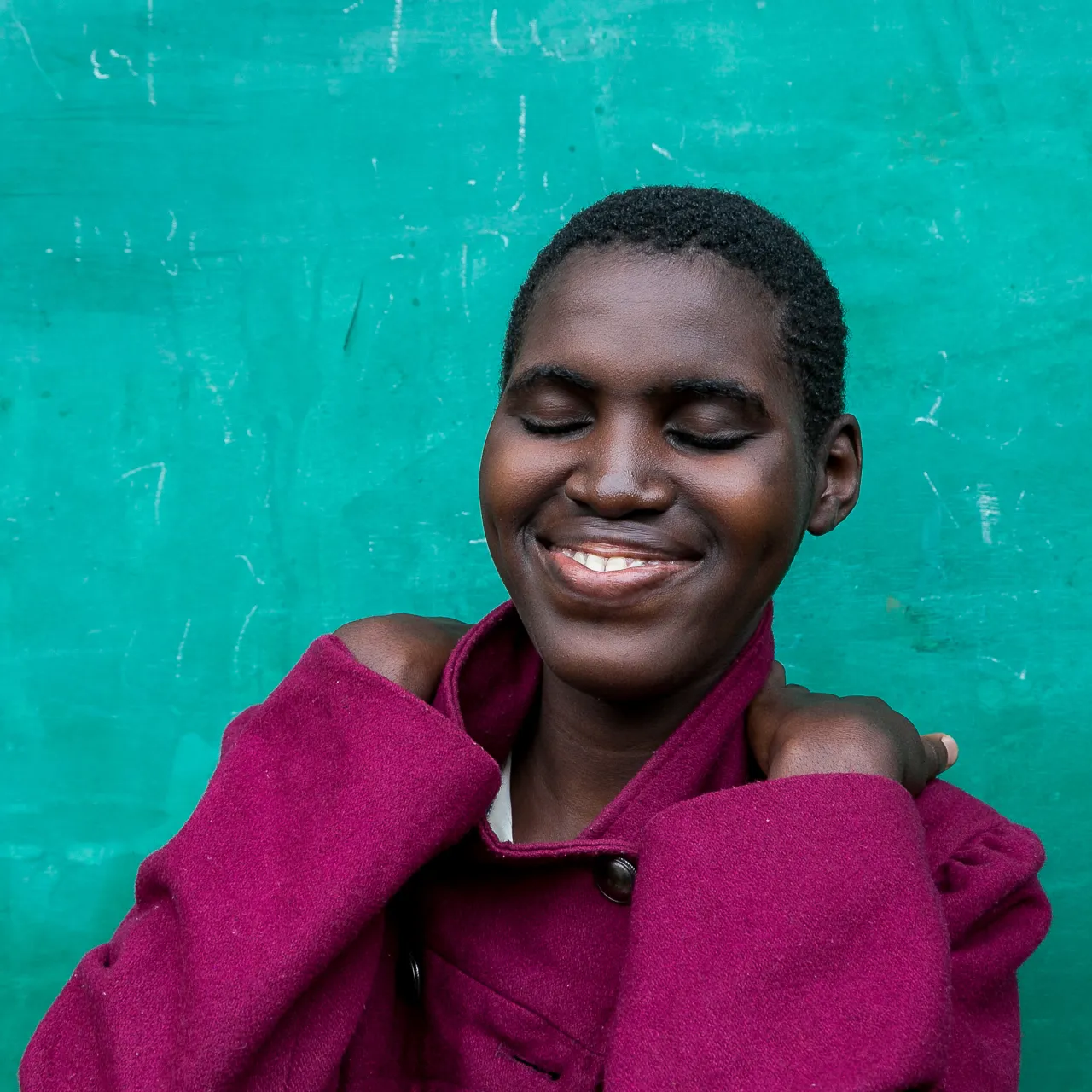
Judith Minfoumou, 18, in her sixth year of school, from central Cameroon
I arrived at the home 13 years ago, and since then my mother has only come to visit four times. I wasn't born blind. I have cataracts: I can see some colours and shapes. When I was a kid I could see well and I played with my ten brothers and sisters.
I heard about coronavirus on the radio. It's a deadly disease that spreads when a sick person comes into contact with someone else. To protect yourself, you should wash your hands regularly with soap and running water, wear a mask, and avoid going out.
I know where the water points are for washing my hands, so I can go there myself.
"But it's hard to keep my distance from other people. Luckily, no one is sick yet in our neighbourhood and we're not mixing with other people, so it's not a big problem."
I love music and I'm always singing. My favourite singers are Dynastie Le Tigre and Yemi Alade. When I'm older, I'd like to be a singer too.
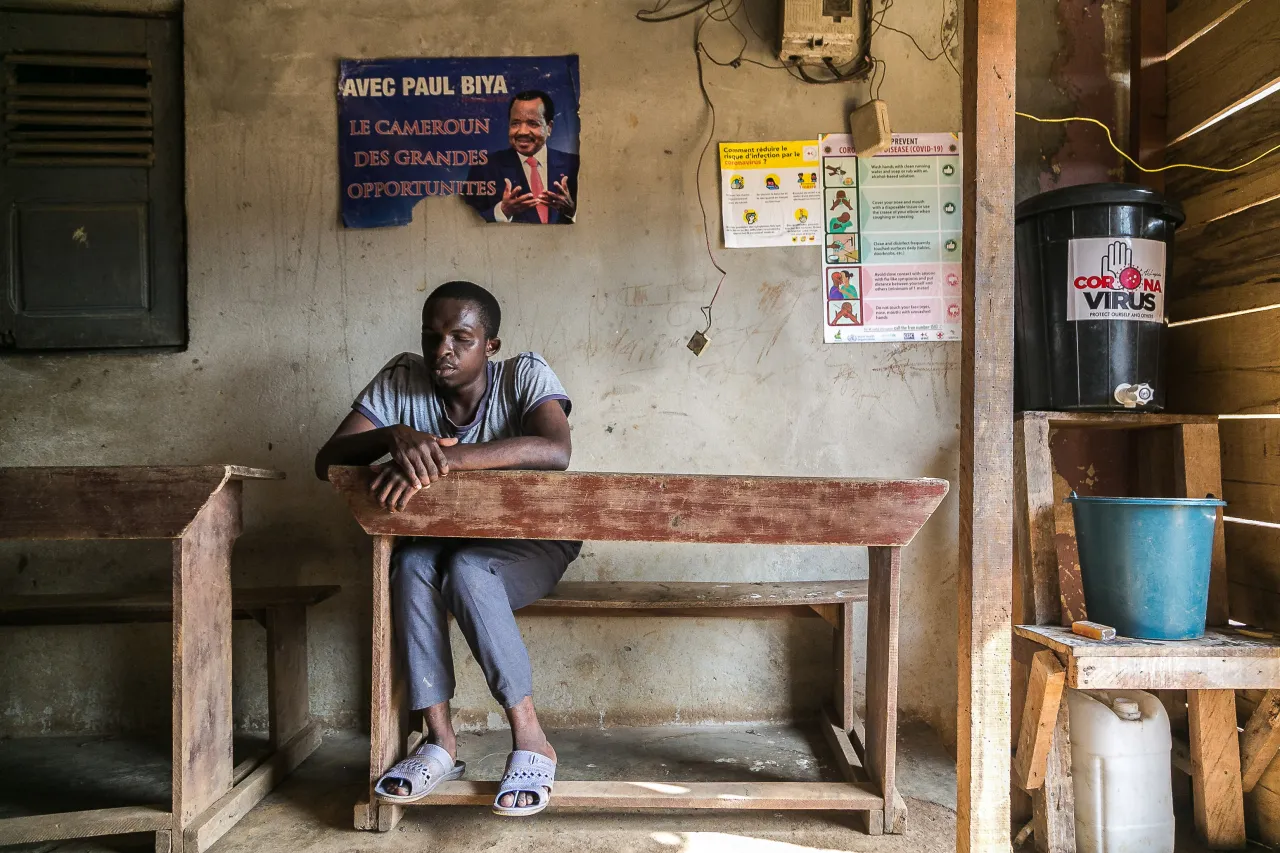
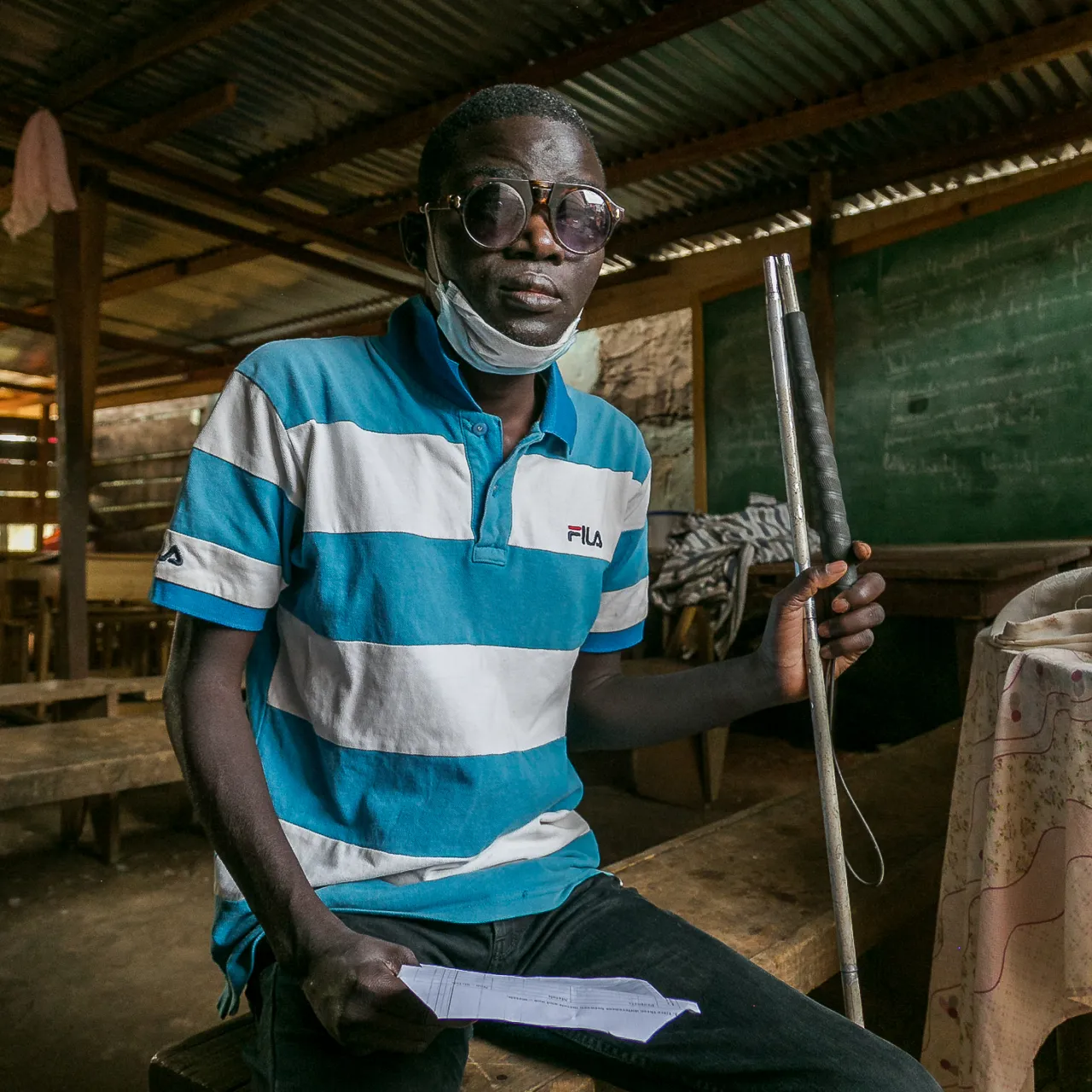
Emmanuel Gaïmava, 19, political science student at the University of Yaoundé
Of my seven brothers and sisters, I'm the only one who's blind. I have river blindness.
I like the law because it allows justice to be served. But because of the pandemic, my classes have been cancelled since March. I hope I can go back soon.
I know that COVID-19 is a deadly disease and no one here wants to catch it. To protect myself and others, I always wear a mask when I go outside and take other precautions as well.
"COVID-19 has changed things: before, the other students and strangers would offer to help me cross the street. Now everyone is afraid to touch me. I understand that things are different now."
The pandemic has isolated me, but not totally. I still have music, especially R&B, to keep me busy, and I like to read.
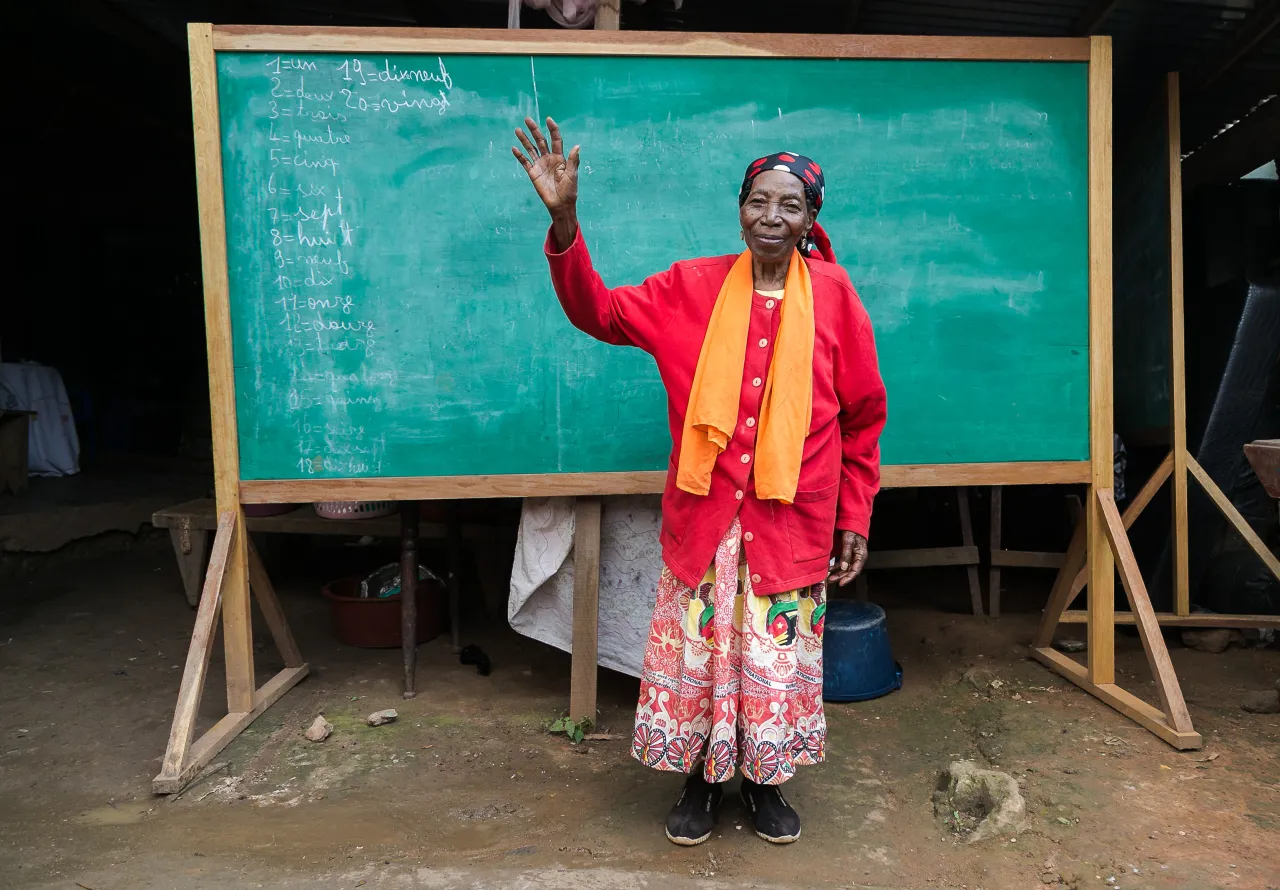
The potential for the spread of COVID-19 has changed things for us at the home. Edwige told us that the crisis "has siphoned away all the funding. The people and organizations that usually support us aren't giving as much."
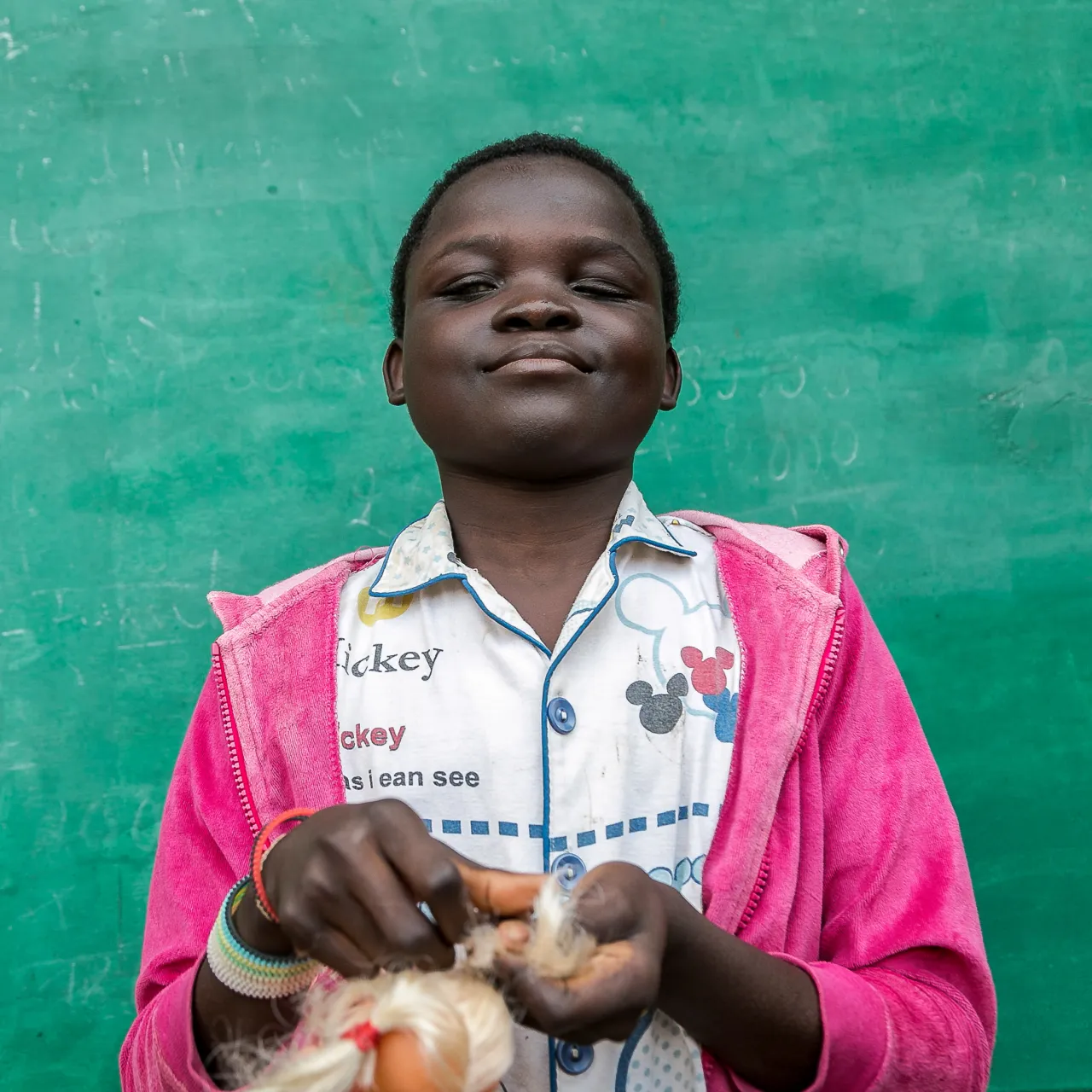
Brigitte Waniwa, 12, in her second year of school, from Maroua
I am completely blind, but I remember that when I was little, I often went with my maman to the market to sell bean fritters. I've been living here at the home with brother, Emmanuel, since 2016. My family has only come to see me once, but luckily Emmanuel and I get along well with everyone here.
"I heard on the news that coronavirus is a disease that can kill and we have to be careful."
When the teachers were still coming to give us lessons, they talked a lot about coronavirus. Now I wash my hands with soap and water all the time and I greet people with just a "bonjour".
Since coronavirus started, I don't go out to play anymore. We stay here all the time. Sometimes I help in the kitchen, cutting the onions. I like braiding my doll's hair. Her name is Barbie. When I'm older, I want to be a hairdresser.

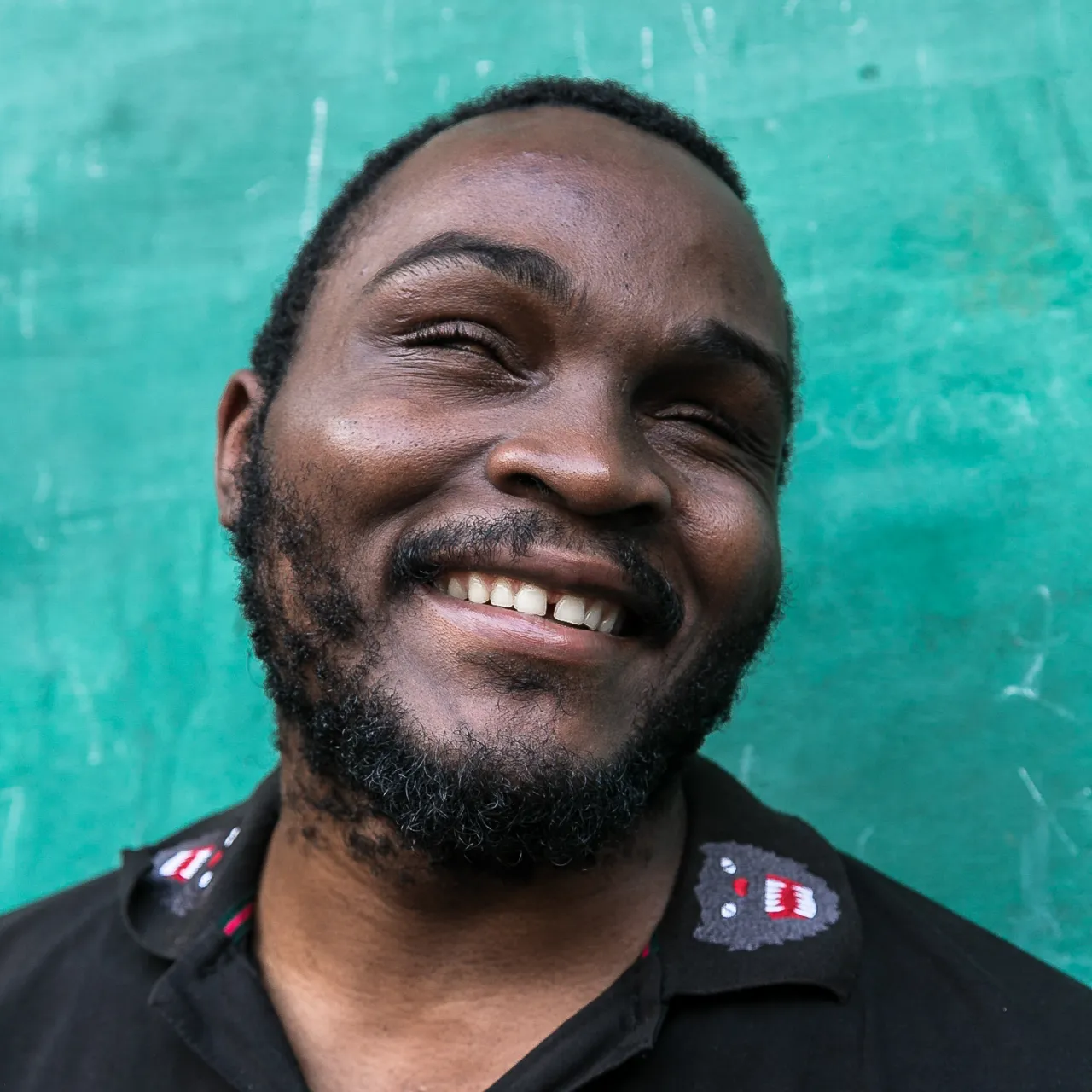
Jules Mollo, 24, in his final year of secondary school at the Adventist School in Yaoundé
Since the government implemented the restrictions, we've been on our own, a bit isolated. The isolation protects us. Even though it's hard for us to keep our distance, we are all doing our best. There's always water in the buckets, with soap next to it. Everyone who leaves wears a mask and washes their hands when they get back.
I think it's important not to confuse physical distancing – the space between people – with social distancing – the difference in status between people in society. Before the pandemic, I was sometimes a victim of social distancing. I was stigmatized, and with coronavirus it's even worse, it makes things hard.
"My social life has been reduced to almost nothing. If coronavirus were a person, I'd give it a piece of my mind!"
I don't have any contact with society anymore, and no work. My friends, my family, benefactors, strangers – almost no one stops by anymore. Before, I would leave to go to school and church, and I played blind football and did martial arts.
I've been living in the home for 14 years, and I would like to become a priest.
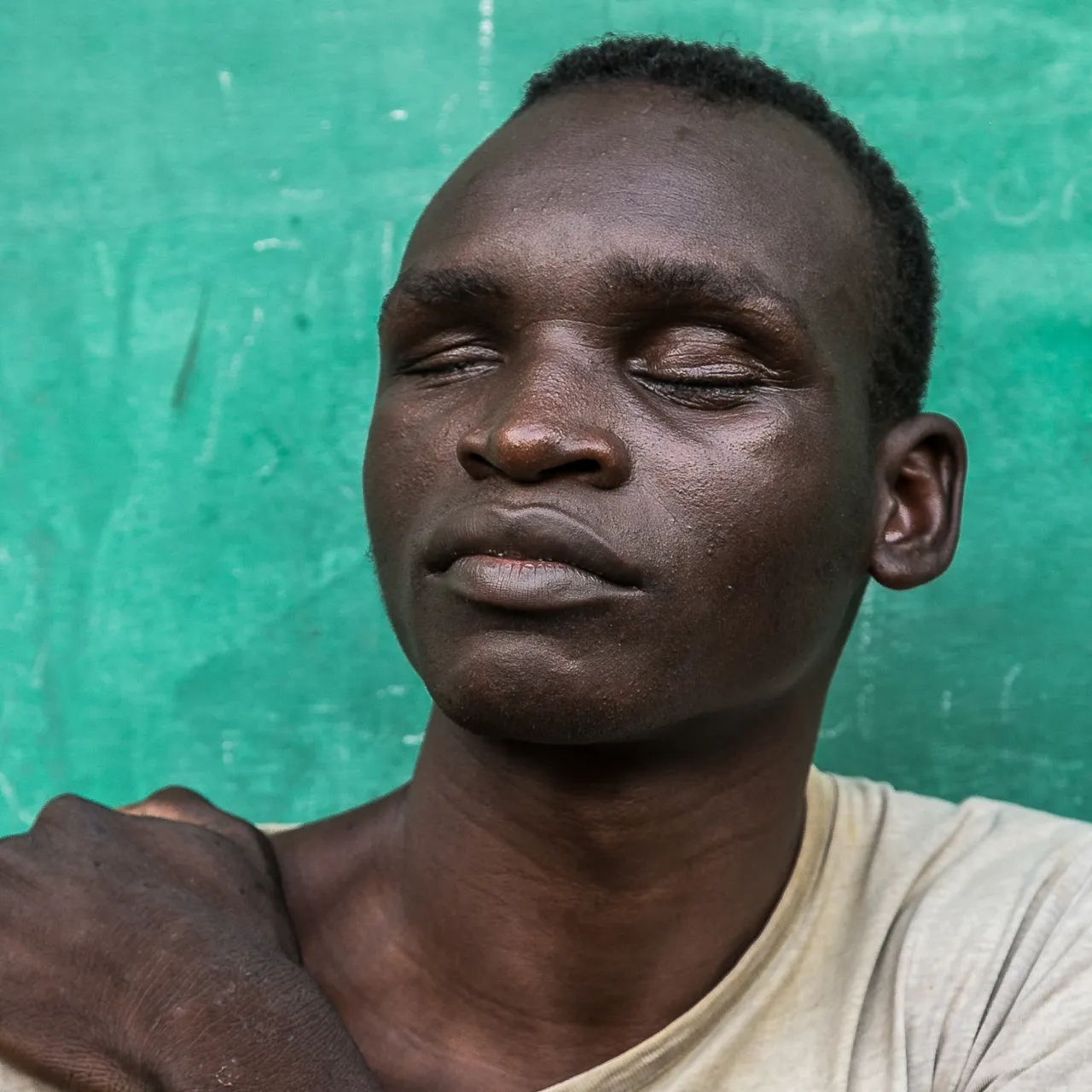
Bienvenu Yaya, 26, teacher-in-training
I like vacations, but this is too long! I want school to start again. At first I thought that Cameroon would be spared, but the disease is everywhere. The numbers are going up every day. I knew things were bad when the prime minister closed the schools, markets and restaurants.
Now everyone is afraid, and we can barely go out, it's like a prison. I was doing all right before: I had my businesses, I went to school, I talked to friends and strangers, but that's all over.
"I think it's hard to fully implement the government's measures because they don't align with the mentality in our society."
I know the symptoms of COVID-19 and I take the proper precautions. It's become habit now. But there are many restaurants in Yaoundé where there's no bucket of water or soap to wash your hands. And some clerics don't believe the disease is real and they preach that to their followers. I hope that we find a cure that everyone can use.
I feel a bit isolated because my family and friends can't come here anymore. We can't go out like before either, but there are a lot of us here at the home, so we have each other.
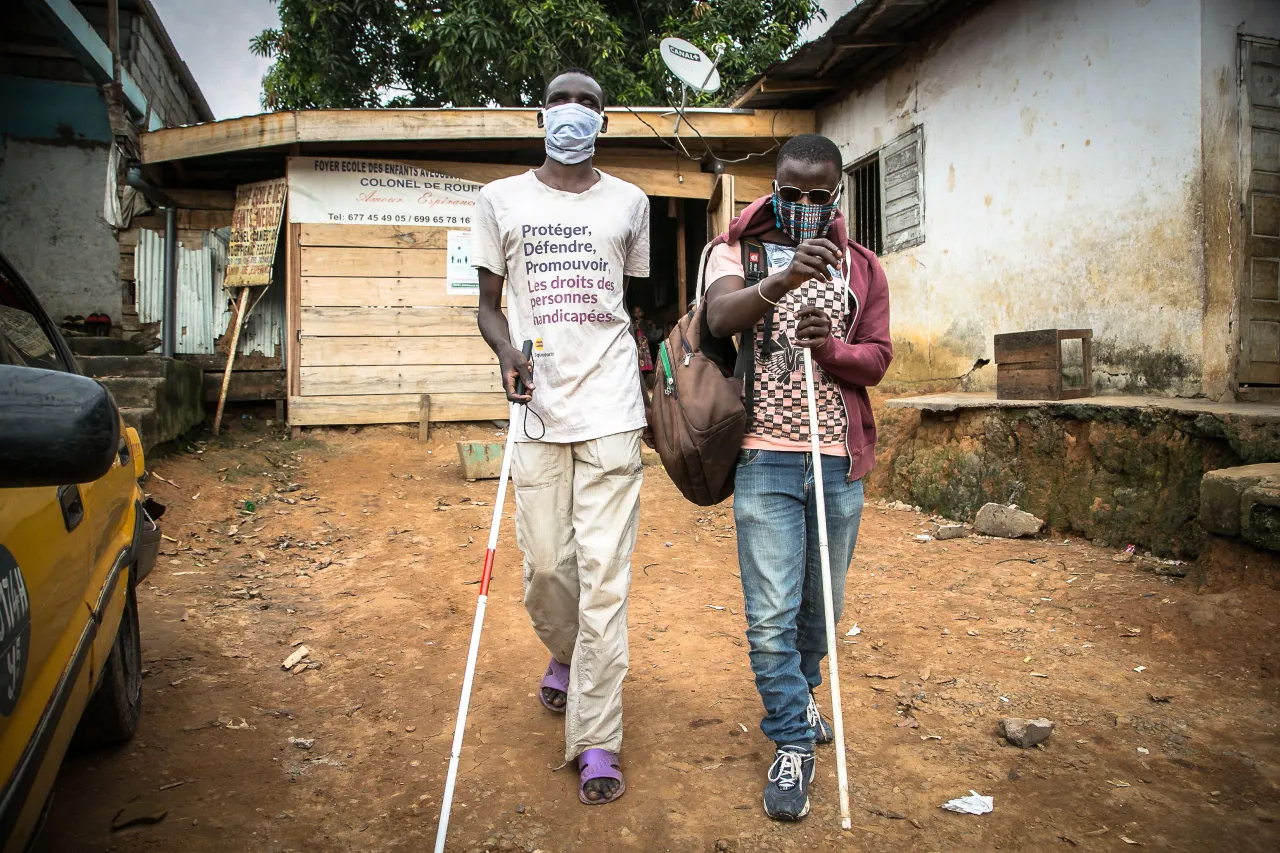
All photo credits: Daniel Beloumou / ICRC

